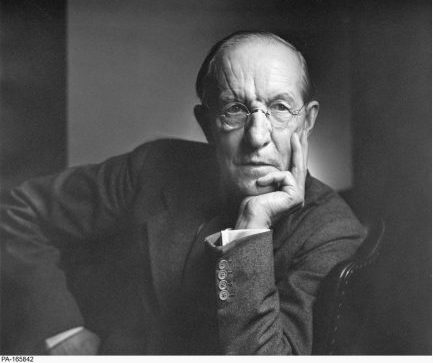Consider this a pre-Canada Day column on pre-Canadians and what became of them. One effect of solemn national origin days is often to obscure any downsides that might’ve existed then or since. On the U.S.’s first Independence Day, only about a third of colonists were supportive. At Confederation, P.E.I. opted out and support elsewhere was shaky. A stark example is Palestine-Israel. On the Israeli side it’s Independence Day; among Palestinians, Catastrophe Day.
What cancels out the ambivalence over time is basically propaganda. Not so much actual successes as cultural celebrations of them. In the U.S., Davey Crockett, the Alamo and so on. Here we had, more modestly, the Confederation Poets, Anglo males born in the 1860s, who wrote poems mildly extolling Canada that went into schoolbooks. They had memorable names like Bliss Carman and Archibald Lampman though I can’t recall a single actual line from their work. They celebrated a naturally pristine, strangely underpopulated country with some keening about vanishing “races” like French-Canadians and Indians.
Among them was Duncan Campbell Scott, a man who didn’t just paper over the country’s founding contradictions, he embodied them. Now, the recent report of the Truth and Reconciliation Commission on residential schools has brought these tensions out spectacularly.
Qua poet, Scott was hailed at home and abroad for his “Indian poems,” he faced no accusations over “appropriation of voice”; the phrase didn’t exist, nor the concept. They were melancholy lyrics about a “weird and waning race” that has “left but tales of ghosts,/ That hover in the world like fading smoke/ About the lodges….”
There’ve been attempts to call the poems sympathetic; if so they never extend into empathy. The “waning” is inevitable and unlamented. All that remains of those peoples is some nomenclature: “wild names that haunt the lovely glens/Where lonely water falls, or where the street/ Sounds all day with the tramp of myriad feet;/Toronto triumphs; Winnipeg flows free.” In other words they bequeathed some colourful language for the Confed poets to plunder.
But Scott also moonlighted for Canada’s government. (Actually his poetry was the moonlighting. We forget how hard it was to live off writing. Writers of that era often depended on support from their businessmen dads — but Scott’s father was a clergyman.)
He spent 52 years in the department of Indian Affairs, rising to deputy minister level, where he basically ran things between 1913 and his retirement in 1932 — the heyday of the residential schools. It was Scott who made attendance compulsory there. He wrote, “Our objective is to continue until there is not a single Indian in Canada that has not been absorbed into the body politic, and there is no Indian question and no Indian department.”
I don’t see any reason to qualify this as “cultural” genocide, as the Truth and Reconciliation Commission and Chief Justice both have. It’s simply genocide, though by cultural means rather than physical obliteration. Genocide is cultural. Mass murder is only one means to that end. Scott was a willing perpetrator.
He has since become a subject of some fascination, especially in connection to his official role. I know you may not have heard of him but this is Canada and there are a relatively large number of studies and books. A 2007 survey listed him as one of the 10 worst Canadians ever. That’s a level of recognition and engagement which eludes most artists.
Just to prove no one in authority ever seems to learn anything from past debacles, we now have a law recently passed for this Canada Day — to match last year’s repellent (literally) citizenship act: the Zero Tolerance for Barbaric Cultural Practices Act.
But Scott’s (and Sir John A.’s) Indian policy was all about zero tolerance for barbaric practices like the potlatch and sun dance, so as to bring their adherents “under the sway of civilization, as far as is practicable with any of their race.” The whole point of the residential schools was to, as they said, kill the Indian in the child by severing the cultural links.
The potlatch, which gave away and destroyed material goods, was viewed as antithetical to capitalist values; so it was banned. Native spiritual rites seemed to contradict the “dominion” over the earth which the Biblical God granted his human creations.
But today unfettered growth and environmental spoliation are clearly disasters. Those Aboriginal approaches now seem wise, even prophetic. Native peoples lead in efforts to save the planet and the species: here, at the tarsands, or by electing an environmentally mindful government in Bolivia.
I’m not saying native cultures turned out better than European ones. I don’t think cultures work that way. They develop organically and unpredictably. They aren’t susceptible to evaluation by bureaucrats (including aesthete-bureaucrats like Scott) or politicians. They evolve, transform or die out.
If you opt for zero tolerance, you may destroy something that could be useful now or later. The way to handle “barbaric” practices like forced marriage isn’t with a cultural blunderbuss; it’s by outlawing particular acts like kidnapping and child marriage, which are already illegal here without attacking any specific cultures.
The point isn’t who has the better culture. It’s that you never know what challenges you may face in the future and what cultural resources might prove useful and adaptable in facing them. If Scott and Macdonald had succeeded in killing the Indian in the child, through the schools program, we’d be without the resources which First Nations cultures afford us now — and for whatever crises get thrown up by the always ornery future.
On the other hand, the precedents for declaring what’s culturally barbaric and therefore dispensable, are pretty scary, as the exhaustive, heart-rending and indeed poetic work of the TRC on the residential schools program, sadly shows.
This column was first published in the Toronto Star.
Photo: Yousuf Karsh/Library and Archives Canada/Wikimedia Commons




